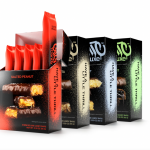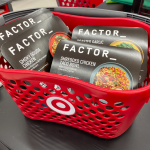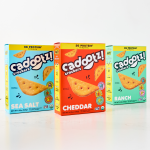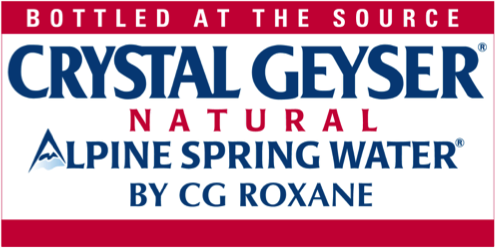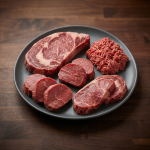Whipstitch Capital: 2021 Marks Shift in M&A as Financings Spiked
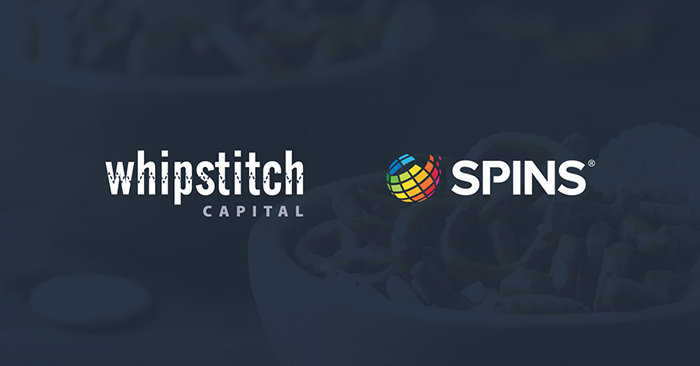
Nutrition, health and wellness financings increased 25% in 2021 as M&A activity returned to pre-pandemic levels, according to the latest Healthy Living Consumer Products webinar by advisory firm Whipstitch Capital and SPINS today.
The health and wellness industry – including food, beverage, pet products, personal care and other consumer goods – saw a total of 342 M&A transactions and 980 financings in the year, according to the webinar, up from 272 M&A deals and 782 financings in 2020. Average financing size reached a record $50 million, versus $30 million last year.
Whipstitch managing director Nick McCoy noted that as major companies focus on buying larger brands, new opportunities for acquisitions from smaller buyers like private equity, SPACs and other small or mid-sized companies have emerged. This new trend in M&A, he said, is the key driver for the spike in average deal size alongside the record number of total transactions (1,322).
“There’s a blurring of the lines between what is a financing and what is an M&A deal as we’re seeing more and more large check financings that a substantial portion of which is going out to shareholders,” McCoy said. “It’s really good news because that means that there’s more exit options and more attention and buyers to provide liquidity to the investors that are behind the companies. And that accelerates capital for our industry.”
The rise in transactions accompanies continued gains on shelf for health and wellness products. Naturally-Positions Products (NPI) and Health & Wellness Products (HWI) both saw 5% year-over-year dollar sales growth in 2021.
Looking forward to the rest of 2022, the webinar also covered 11 of the top “Healthy Living Trends” currently disrupting the industry. Among the top items were pet foods and supplements becoming “more human-like” as specialty brands appeal to animals’ unique needs and preferences, higher demand for locally grown and produced products, ecommerce continuing to offer more products previously only sold in retail, video-based social media driving trends, and personal care items becoming more inclusive through consumer education.
In the beverage alcohol arena, consumption is continuing to move towards more convenient, craft and “guilt-free” options, noted Whipstitch managing director Mike Burgmaier. Ready-to-drink cocktail sales grew 126% in 2021 while consumers also seek out better-for-you libations; 44% of alcohol consumers said they try to select the healthiest option when drinking. This trend, Burgmaier noted, also includes non-alcoholic alternatives including products like Hoplark Hoptea or ready-to-drink mocktails.
Likewise, with health on the mind of many shoppers, low and no sugar product launches continue to”reach new heights.” As well, Keto product launches nearly doubled in 2021. Whipstitch executive director Andress Blackwell added that younger consumers are rejecting the word “Diet” in favor of “Zero Sugar” labeling – a trend highlighted by CSD leaders like Coke, Pepsi and Keurig Dr Pepper who have leaned into their Zero Sugar lines in recent years.
“This truly paves a clear path for more low and no sugar functional beverages like Olipop, Aura Bora, and even the new entrant called Wildwonder,” Blackwell said.
This shift towards healthy consumption has also led to an increase in plant-based diets that are prioritizing vegetables and “plant-forward” diets. About 5% of U.S. consumers identify as vegetarian and just 2% as vegan, but 44% identified as “plant-forward” prioritizing fruit and vegetable based dishes while reducing meat intake, Blackwell said.
The trend is further spreading in mainstream channels, in particular convenience as c-stores embrace better-for-you brands providing consumers with more options. According to the webinar, shelf stable plant-based milks was the second fastest growing category in convenience last year (just behind shelf stable drink mixes and concentrates) with sales up 99%. Refrigerated plant-based milks grew 36% in c-stores and performance nutrition rose 38%. Brands like KIND Frozen, Koia, Dream Pops, Lenny & Larry’s and Madegood were highlighted as some of the strongest better-for-you performers in the channel. Environmental sustainability also remains a major driver of consumer behavior; over 50% of consumers said they consciously aim to buy from sustainable brands.
Finally, despite the federal obstacles, the cannabis industry is continuing to boom as the U.S. market is expected to surpass $48 billion by 2026. The webinar noted that only 14 states remain that have not legalized full medical or recreational use and California, the largest legal cannabis market worldwide, was up 25% in 2021.
